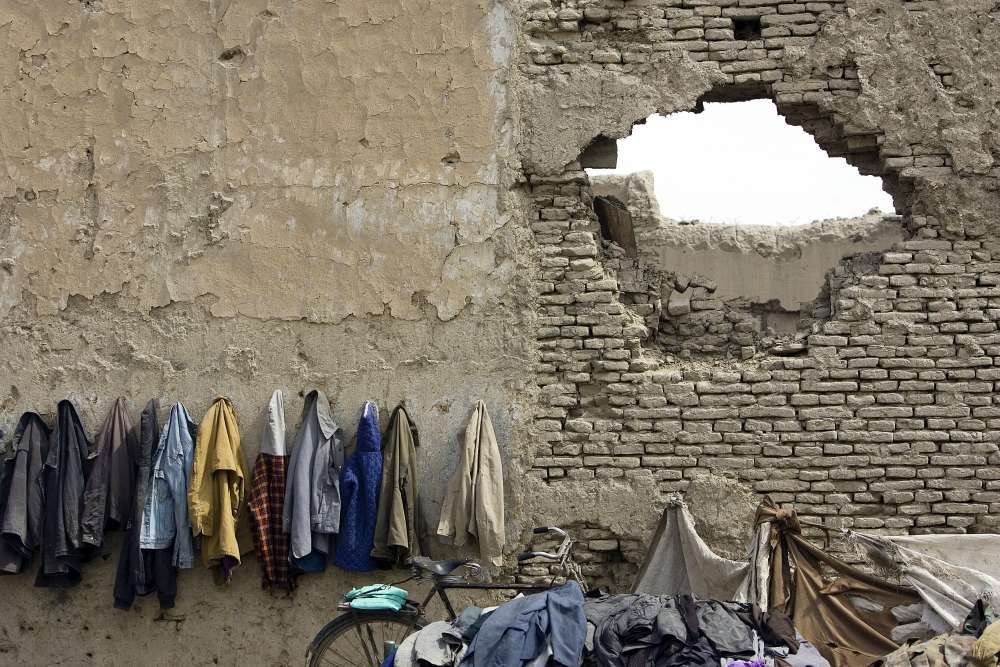Hundred Years Between the Poles: In the Law of War, Politics is the Mediator

In the fall of 1914, the great war that we now call the First World War had been ongoing for only months, but the troops of Imperial Germany had already cut loose: Within weeks, they had shot 850 civilians in neutral Belgium, burned more than 400 houses and used hundreds of civilians as human shields. Military brass and lawyers construed convenient justifications. Although much time has passed, the events remind us of the challenges that the international law of war still faces today.
As documented by historians John Horne and Alan Kramer, the German crimes against Belgian civilians were above all the result of collective “auto-suggestion.” The soldiers shot civilians because of a collective fear they could be partisans. In the war against France of 1870 – 1871, such partisans, so-called “Francs-tireurs,” had been a regular occurrence. But in fact the atrocities were also flanked by Imperial Germany’s understanding of the law of war. Isabel Hull, another historian, has documented as much by digging through the archives of the German Ministry of Foreign Affairs.
According to her work, the military, diplomats and lawyers in Imperial Germany had developed over the course of 50 years before the First World War their particular understanding of what is allowed in war and what is not. In 1874, when Russia invited the European states to Brussels to put the customary laws of war on paper, the German representatives were already in dispute with their European counterparts over how the law regulates the relationship between rule and exception. Among the German military leadership and German lawyers, the view was commonplace that military necessity was not just a practical consideration, but an overarching principle that structures the entire law of war. Hence, where the law of war did not provide for express rules, it was the factual – der Kampf (combat) – that was the law.
The other European States disagreed. They were at cross-purposes with the representatives of Imperial Germany when they debated in 1899 a humanitarian clause that still today circumscribes a basic principle of the law of war, the so-called Martens clause of the Hague Convention on the Laws and Customs of War on Land. According to the clause, even where there is no express provision of the law of war, “populations and belligerents remain under the protection and empire of the principles of international law, as they result from the usages established between civilized nations, from the laws of humanity and the requirements of the public conscience.” For Germany, the clause was a disagreement glossed over by black letter and therefore void. When the First World War began, Imperial Germany let the facts administer the law – the normative power of the machine gun. Yet, Imperial Germany never denied the validity of international law in principle.
With the doom of Imperial Germany, gone too is the view that combat has a normative value that determines the law. Today every international lawyer would agree that law determines combat. In contrast to then, it is impossible to justify the death of civilians by reference to some illusionary determinant outside the law. But the laws of war themselves supply reasons why the death of civilians is lawful or will go unpunished.
These reasons are most evident when looking at the prohibition of indiscriminate attacks in today’s international law of armed conflict. Indiscriminate attacks are attacks that do to distinguish between civilians and combatants (or civilians and people taking direct part in hostilities), or between military objectives and non-military objectives. Some weapons are as such indiscriminate and for that reason outlawed, such as chemical weapons or cluster munitions. But it is difficult to prosecute those who use a lawful weapon in an indiscriminate way. This can bear absurd results, as evidenced by a 2012 decision of the International Criminal Tribunal for the Former Yugoslavia, when the tribunal was of the opinion that the 900 artillery shells falling on the Serb town of Knin in 1995, without sign of resistance, were not an indiscriminate attack. In 2013, on the Afghan airport of Jalalabad, a US Army helicopter shot and killed four young men and a child hunting for birds; this can pass as an unfortunate error. Who, after all, could expect an army to have at hand the correct information at all times? Who could expect an army to identify the correct individuals if asymmetric warfare is characterized by insurgents intermingling with the civilian population?
Indiscriminate attacks are also attacks that “may be expected to cause incidental loss of civilian life, injury to civilians, damage to civilian objects, or a combination thereof, which would be excessive in relation to the concrete and direct military advantage anticipated.” Military and humanitarian considerations are constant rivals in the law of war. This is because that law by no means seeks to practically render impossible the conduct of hostilities. But precisely because of that rivalry between humanitarian and military considerations, the principle of proportionality is routinely torn apart as a result of tension between its utopic and its unprogressive potential. In the war of 2014 in Gaza, Israel acted in accordance with the law of war, even though hundreds of civilians died during the operations of the military. In contrast, Hamas’ rockets, though less deadly, were clearly breaching the law, for they could not distinguish between belligerents and non-belligerents.
Even though today’s law of armed conflict aims to achieve a balance between military and humanitarian considerations, the written law cannot provide the logic used to hold up these poles against each other. That logic has to come from outside the written law. The provisions of the laws of war on the conduct of hostilities are therefore as imperfect as they are progressive: They are prone to being used to cover the death of civilians. They let individuals make decisions of which they can hardly foresee the consequences. But the provisions are also adaptable to the normative consensus of the international community or of the army applying them.
In this antagonism of the law of war, politics has the role of the mediator. If German politics confuses the much-cited German “culture of military restraint” with a culture of staying out of conflicts altogether, there is reason to be frustrated about that culture. Yet, a culture of military restraint remains the best safeguard against the killing of civilians by an army. The German federated government should therefore resolutely object when its partners overstretch the law of war or apply it where it should not be applied in the first place – such as with the targeted killings by drones in Pakistan. The government should also work towards establishing permanent monitoring mechanisms for compliance with the law of war, and further develop the humanitarian aspects of the law of war. Thus it would be well-advised to adopt the view of the International Committee of the Red Cross according to which the targeting of a belligerent during a non-international armed conflict is not lawful if the person can be captured without significantly endangering own military forces. The occasion will arise in 2015, when the Red Cross and Red Crescent Movement meet for the first time in four years during an international conference to draft common resolutions and make unilateral pledges. For Germany’s federated government, it would be a good occasion to commemorate the First World War.
…
A German version of this piece originally appeared in the print edition of the Frankfurter Allgemeine Zeitung, on December 24, 2014.







